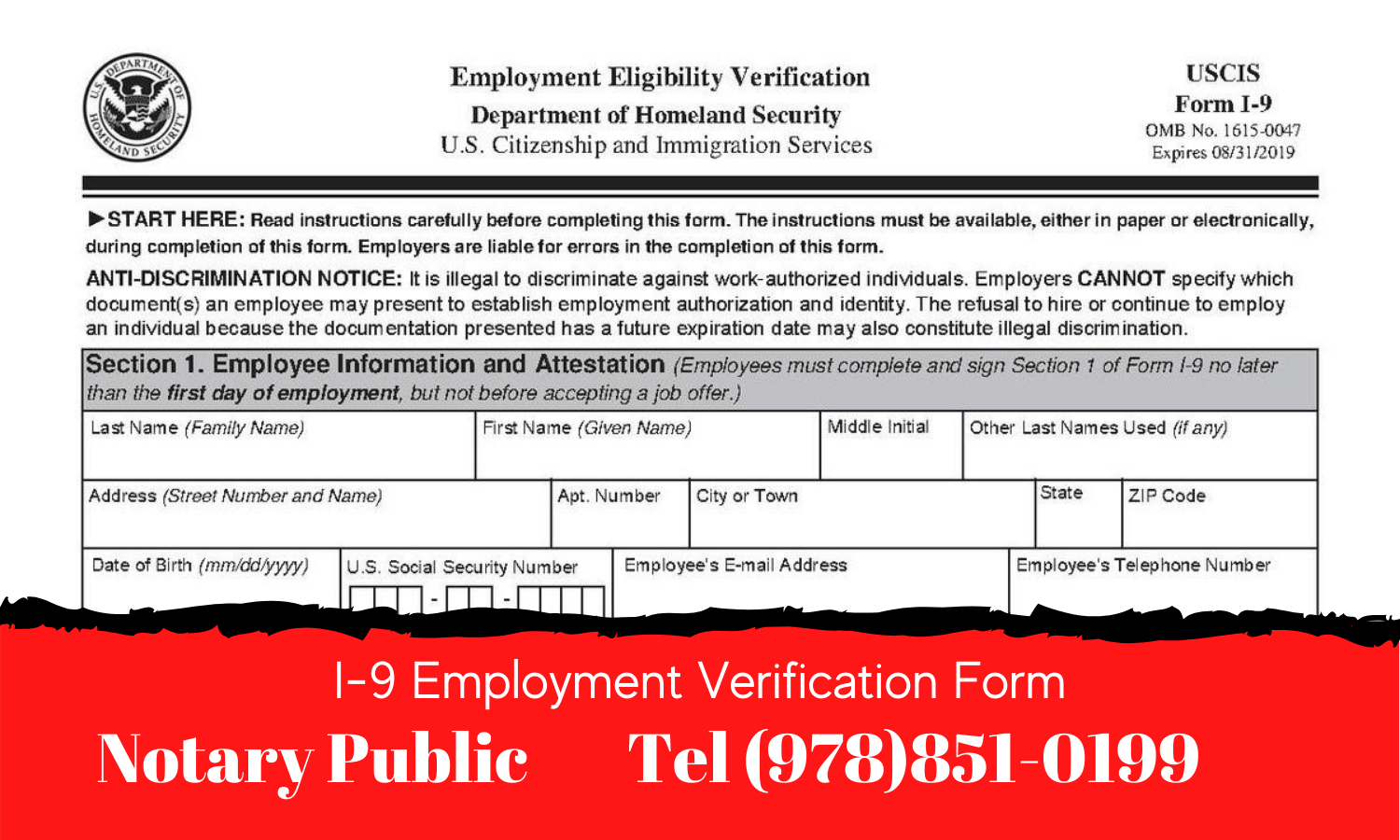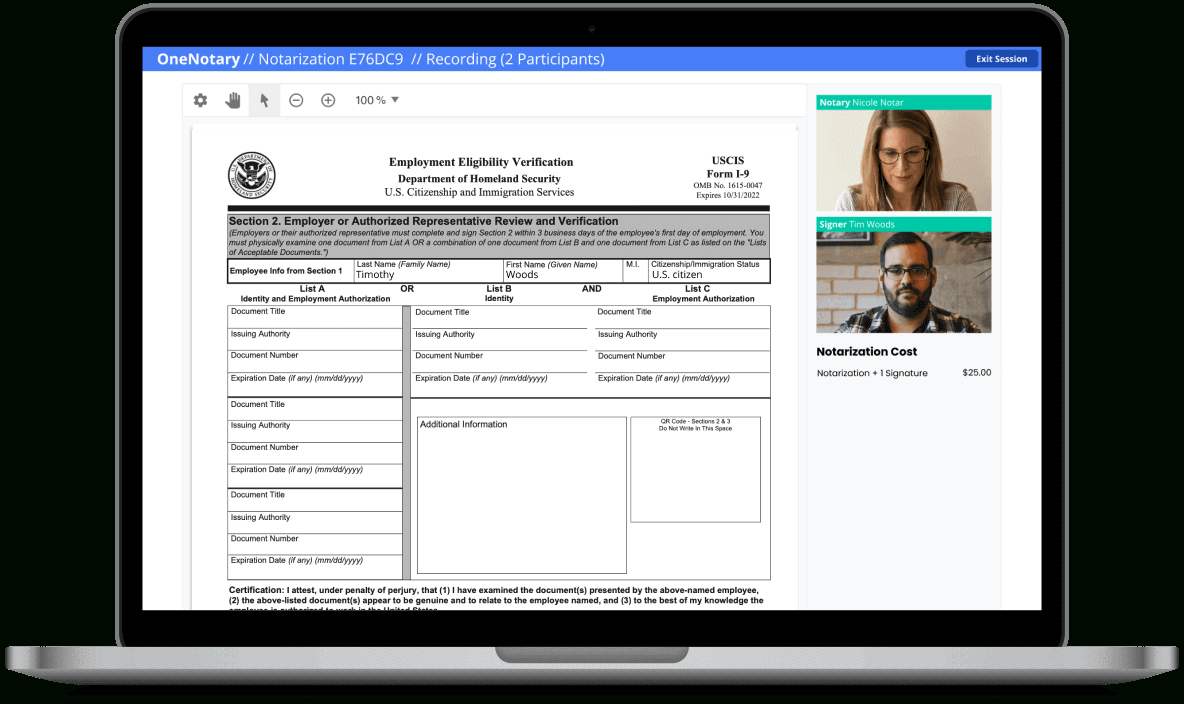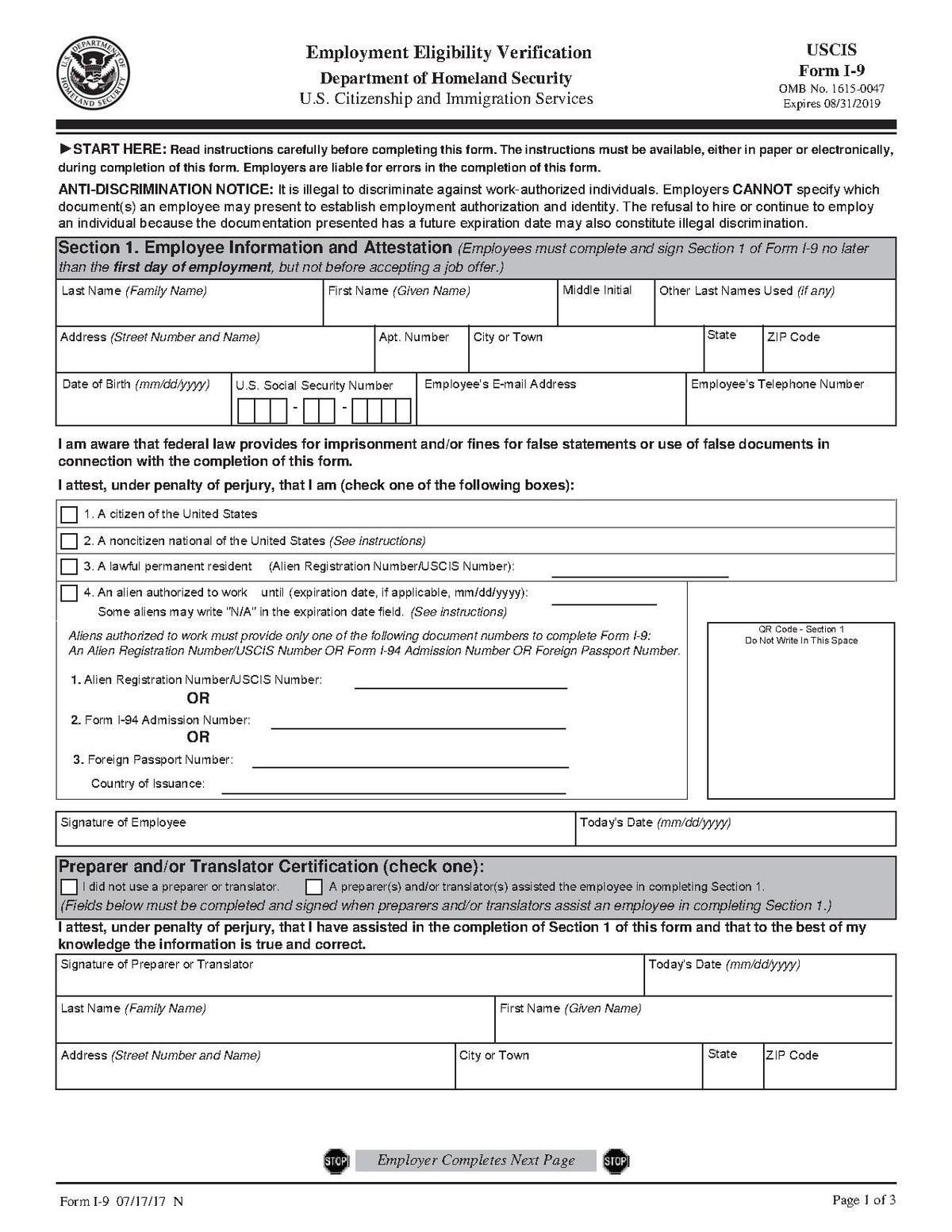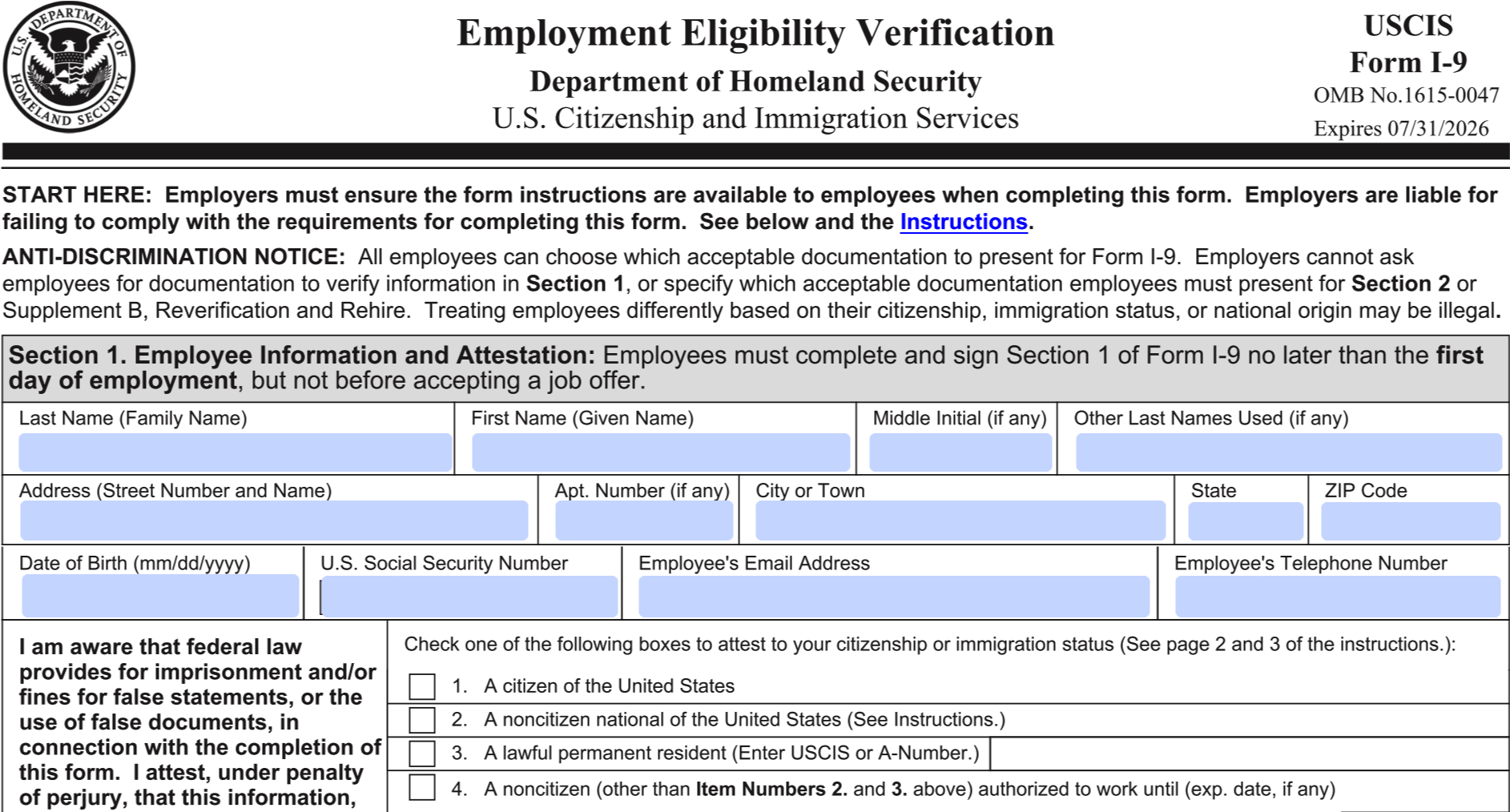In the landscape of U.S. employment, the Form I-9, officially known as the Employment Eligibility Verification form, plays a pivotal role in verifying the legal authorization of individuals to work. However, unlike many other official documents that may require notarization, the I-9 form is not typically one of them. This article explores who is responsible for handling I-9 forms, the unique circumstances under which they might need to be notarized, and what exactly that process involves.
Who Notarizes I9 Forms?
No one notarizes I-9 forms.
The I-9 is a federal form that is completed by the employee and the employer. There is no requirement for a notary public to witness or certify the form.
However, the employer may choose to require additional documentation, such as a copy of a passport or driver’s license. These documents may need to be notarized, depending on the specific requirements of the employer or the state where the employee is working.
Understanding the Role of the Employer
Primarily, the responsibility for completing and maintaining I-9 forms lies with the employer, not a notary. The process involves verifying the identity and employment eligibility of each employee, based on documents the employee presents from a list approved by the U.S. Citizenship and Immigration Services (USCIS).
Employer Responsibilities:
- Section 1: The employee must complete Section 1 of the I-9 form, which asks for their personal details, on or before their first day of employment.
- Section 2: The employer must review the employee’s documents and complete Section 2 within three business days of the employee’s start date. This section involves the employer verifying that the documents presented appear genuine and relate to the employee.
The Notary as an Authorized Representative
There are specific scenarios, particularly in remote hiring situations, where an employer might designate an authorized representative to complete Section 2 of the I-9 form on their behalf. In these cases, a notary public may act as the authorized representative.
Notary Public as Authorized Representative:
- Verification, Not Notarization: When acting as an authorized representative, the notary is tasked with verifying the authenticity of the employee’s identity documents. It’s crucial to note that the notary in this role is not notarizing the I-9 form as they would with other types of documents. Instead, they are merely certifying that they have examined the documents proving the employee’s identity and employment authorization.
- Avoiding Confusion: Notaries must ensure they do not apply a notarial seal on the I-9 form, as this is not required and can lead to confusion regarding the purpose of their role in this process.
When Might Notarization be Required?
While notarization of I-9 forms is not required under federal guidelines, there might be rare circumstances dictated by company policies or misunderstanding where a notarized copy of the form is requested. However, it is essential to clarify that this is not a requirement by USCIS and does not comply with the typical legal process of completing an I-9 form.
The Importance of Compliance
For employers, the correct completion of the I-9 form is critical. Improper handling or falsification of the I-9 can lead to severe penalties, including fines and sanctions. Employers must ensure that they are familiar with the requirements and maintain proper records as stipulated by the law.
- Record Keeping: Employers must retain completed I-9 forms for either three years after the date of hire or one year after the date of termination, whichever is later.
- Inspection: I-9 forms should be available for inspection by authorized U.S. government officials from departments such as the Department of Homeland Security, Department of Labor, and Office of Special Counsel for Immigration-related Unfair Employment Practices.
Conclusion
The I-9 form is a fundamental component of the employment verification process in the United States, ensuring that only eligible individuals are employed legally. While notaries can act as authorized representatives in certain situations, they do not notarize these forms in the traditional sense. Understanding and adhering to these nuances is essential for maintaining legal compliance and supporting the integrity of the employment process.
Images Related to Who Notarizes I9 Forms



